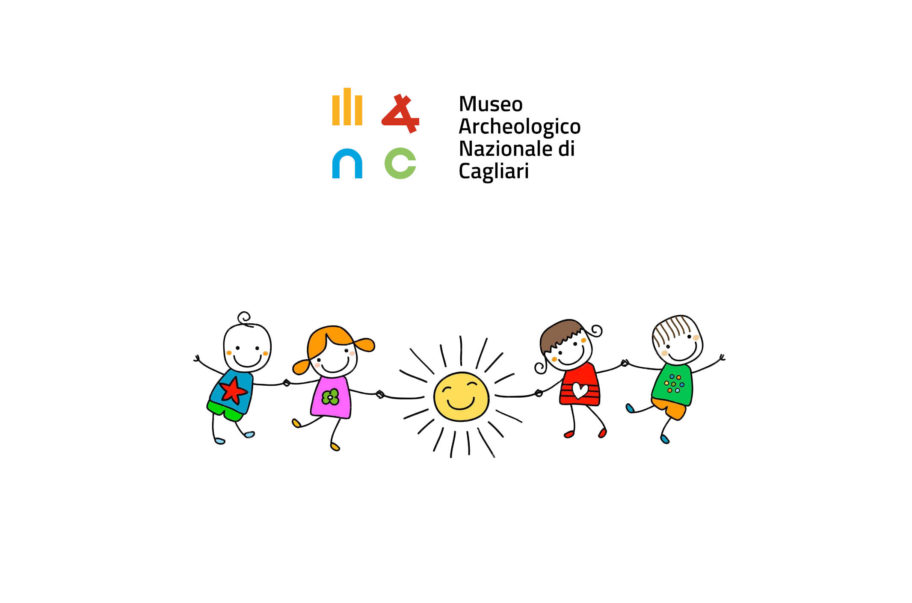Corpo Pagina
The Musei nazionali di Cagliari strongly believe in accessibility and in the importance of being museums capable of transforming themselves in order to be accessible to all their visitors.
For this reason, they orient their mission by taking inspiration from the UN Convention on the Rights of the Child and the Adolescent, approved by the General Assembly of the United Nations on 20th November, 1989, and its 4 fundamental principles: Non-discrimination (art. 2); Best interest (art. 3); Right to life, survival and development of girls, boys and adolescents (art. 6); Listening to the opinions of minors (art. 12).
The Museums create educational paths for all ages and place girls and boys at the center of their action, with particular attention to their health, well-being in the early years of life and interaction with their parents.
Accessibility for everybody
The Musei nazionali di Cagliari have no physical barriers and place accessibility from all points of view at the center of the visitor experience.
Entrance to the Museums is free for children up to 18 years of age and costs €2 for visitors aged 19 to 25, in line with the ministerial provisions.
All communication from the Museums is designed to be completely accessible, from a physical, cognitive and sensorial perspective.
There are two available tools designed for children and in particular for children and young people affected by autism spectrum disorders.
The first is a simple and accessible guide with illustrated stories of the most significant works belonging to the Archaeological Museum. It is entitled “Discovering the past” and is based on the communication model of social stories that lends itself to teach and educate in social behavior.
The second is an internal communication tool consisting of two panels with accessible graphics and text that explain to girls and boys how to have a wonderful experience while visiting the Archaeological Museum.
At the Archaeological Museum, in front of the showcases of the chronological exhibition floor that tells the story of Sardinia, there are 3D relief resin copies of the finds exhibited in the showcase that can be manipulated freely. In addition, there are videos in LIS language along the path.
Families are welcome
The Museums are equipped with an area dedicated to girls and boys with pencils and sheets of paper available and drawings of the most important finds to color. There are also toilets of adequate size for the needs of girls and boys.
In addition, since 2019 there has been a fundamental space in order to protect the rights of boys and girls and for the well-being of families, officially recognized by UNICEF in 2023: it is the Baby Pit Stop, a welcoming environment, decorated with images of finds linked to childhood, in which a comfortable armchair allows parents to rest and breastfeed, a changing table allows diaper changes and some games favor the entertainment of the little ones.
UNICEF Baby Pit Stop is part of the policy to promote a cultural model able to respond to the needs of girls and boys pursued by the Museums.
Heritage education
The Education Department of the Museums offer activities for children, adolescents, schools and families. Workshops and guided tours are offered for free upon reservation.
Along the whole tour path, a selection of the most important works is highlighted with a QR Code that allows to listen to a special audio guide dedicated to children, which describes the find and tells its story in accessible language and of limited duration.
A table is set up regularly with books for children and adolescents on the topic of archaeology or art history, in collaboration with the Children’s Library of the Metropolitan City of Cagliari.
Listening and participation
The Musei nazionali di Cagliari set up their activities aimed at minors starting from listening to the needs of children and adolescents and from the feedback that the Education Department receive, collected through specific satisfaction questionnaires, developed according to the specific age group.
The participation of minors is encouraged through involvement in the planning of educational activities, implemented both through projects with schools (in particular PCTO) and in a less structured way, on the occasion of particular initiatives that require their presence.
Healthy eating
Healthy products are offered to girls, boys and adults in self service machines, to promote a proper nutrition.
Breastfeeding is welcome throughout the facility, but in particular inside UNICEF Baby Pit Stop where it is dedicated a space for breastfeeding with maximum tranquility and comfort.

